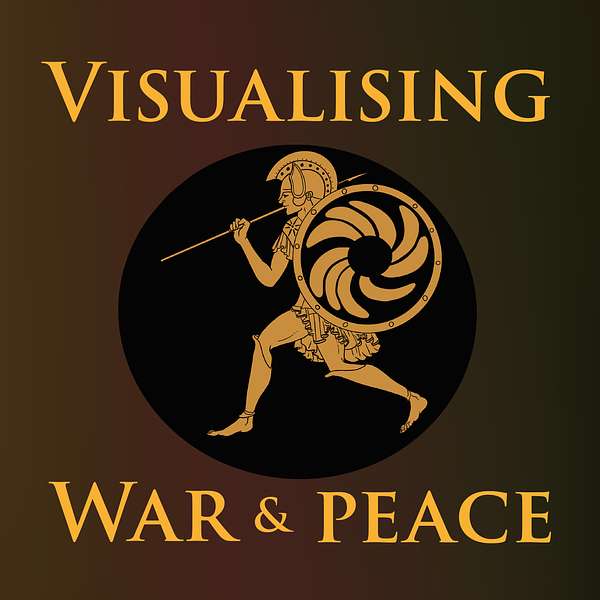
Visualising War and Peace
How do war stories work? And what do they do to us? Join University of St Andrews historian Alice König and colleagues as they explore how war and peace get presented in art, text, film and music. With the help of expert guests, they unpick conflict stories from all sorts of different periods and places. And they ask how the tales we tell and the pictures we paint of peace and war influence us as individuals and shape the societies we live in.
Visualising War and Peace
The Institute for War and Peace Reporting with Anthony Borden
In this week's episode, Alice interviews Anthony Borden, Founder and Executive Director of the Institute for War and Peace Reporting. Founded 30 years ago, the IWPR thinks globally but works locally, fostering grassroots journalism in many different parts of the world. Via training, mentoring and support on the ground, it empowers local journalists and civil society groups to tackle disinformation and to inform, educate and mobilise their own communities. Its mission is to 'give voice to people at the frontlines of conflict and transition to help them drive change'.
Alice and Tony chat about the IWPR's history - how it came into being in the 1990s during the wars that followed the break-up of Yugoslavia, and then expanded in the aftermath of 9/11. They discuss how war and peace reporting has changed over the years, particularly with the advent of digital media and the rise of citizen journalism. Fake news and the increasing 'fog of war' makes accurate, reliable reporting more important than ever, but journalists operate in increasingly hostile environments, with the tracking of their digital 'footprints' often adding to physical threats on the ground. Tony explains what impact mentoring by experienced journalists can have in supporting journalists and activists who are working in challenging environments and in encouraging new voices to emerge. He reveals that Malala Yousafzai first started out as a trainee on the IWPR's Open Minds project, before becoming a trainer herself. As the episode goes on, he reflects on the vital role that good journalism can play, not only in reporting accurately on wars but in reducing the drivers of conflict. As he puts it, the principles of good journalism - facts, balance, fairness and decency of tone - are foundational tools in conflict resolution.
Among other questions, Alice asked:
- what inspired the foundation of the IWPR, and how was its mission defined?
- what role can or should journalism play in conflict zones and peace processes?
- what difference does it make to empower marginalised voices during conflicts and periods of transition? And what risks do we face if we do not support voices on the ground to have their say and drive change ?
- how might war and peace reporting change in the coming decades?
- what work will the IWPR be prioritising to meet the challenges of the future and continue supporting war and peace reporting around the world?
We hope you enjoy the episode!
For a version of our podcast with close captions, please use this link.
You can find out more about the work of the Institute for War and Peace Reporting on their website. As an NGO, they rely on fundraising to keep their important work going; so if you have been inspired by what you have heard, please do consider pressing the red 'donate' button to contribute.
For more information about individuals and their projects, access to resources and more, please have a look on the University of St Andrews Visualising War website.
Music composed by Jonathan Young
Sound mixing by Zofia Guertin